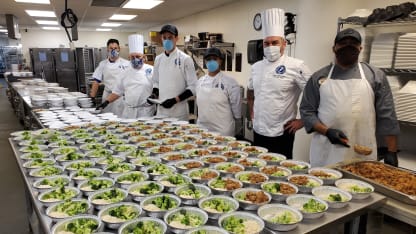"…There's a lot of folks who a month ago thought they had a good, secure job and a month later are in a food line. Folks are scared. They don't know where to find support. One of the things we want to make sure we can do and one of the things our partnership with (the Lightning) helps us do is make sure people have a meal, make sure they know they can get a meal. And so, we're really, really concerned with making sure we can provide a good, healthy, tasty meal where someone wants to have one because we sure don't want anybody to go without."

